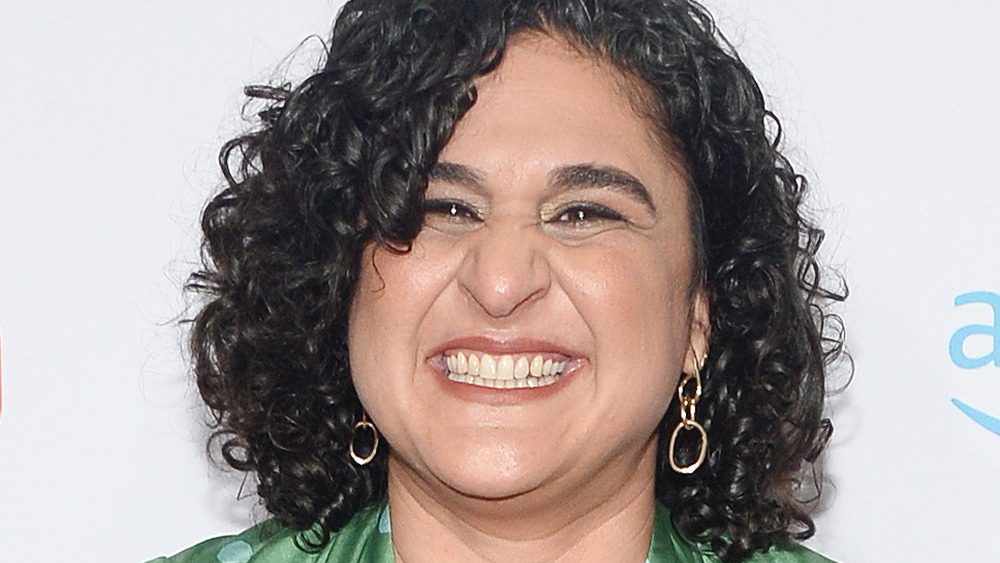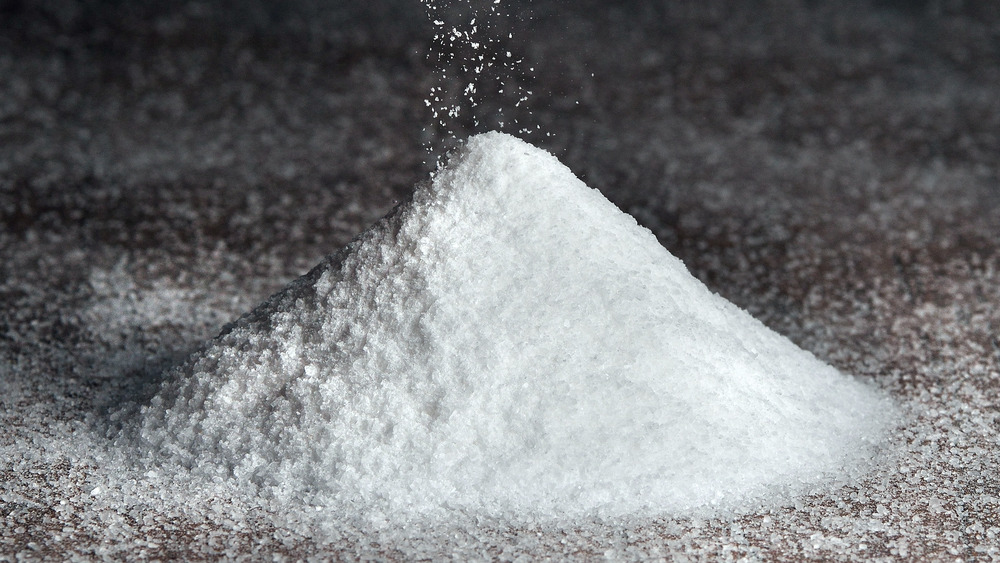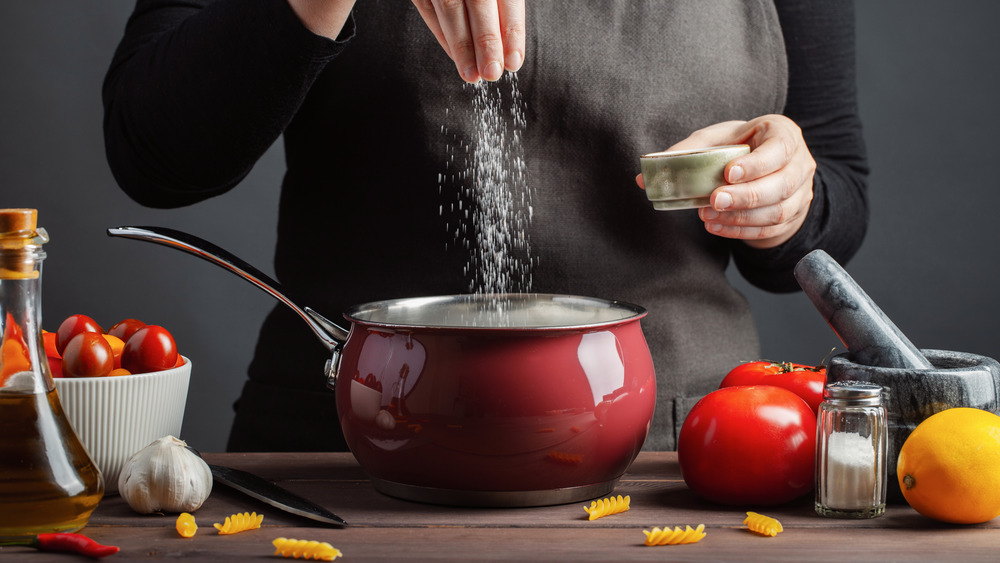The Big Mistake People Always Make With Salt, According To Samin Nosrat - Exclusive
While Samin Nosrat's presentation of the four main elements of cooking (salt, fat, acid, heat) might seem very straightforward, there's one element that may appear to be more approachable than the others: salt. Most people use salt to season their food, and many can taste when their food has been over-salted at the table or at the end of the cooking process. However, Nosrat explains that learning to use salt and these other elements as a tool of flavor just takes practice.
The chef and author said, "I think for most people who just are maybe beginning cooks or have not, let's say, spent a ton of time in the kitchen or have not strayed from the same recipes that they've always been comfortable with and maybe [not] thought theoretically or philosophically or big picture about what's happening in the kitchen, they probably are afraid to use salt or fat or acid in a way... They're probably afraid to actually have a relationship to salt and fat and acid beyond what is dictated to them in a recipe. This many teaspoons of this, this many tablespoons of this." In an exclusive interview with Mashed, Norsat shared that she believes there is a simple first step to getting better acquainted with salt everyone should do — even before learning to use it more efficiently and effectively in your cooking.
Get to know your ingredients
Nosrat explained, "I think the first thing to do is get acquainted with all the different forms of these ingredients, and the fact that they come in so many forms." For example, you don't have to stick to using plain table salt — you can also use ingredients like soy sauce, fish sauce, or tamari in recipes to add a salty flavor (via Men's Journal). Once you are familiar with and know of different sources of salt, you can start incorporating them into your cooking more easily.
Though having more options of enhancing food with salt is handy, you could be using more of it as well. Nosrat said, "when it comes to salt, I do think a lot of people need to get comfortable using a little bit more, but even more than that, it's adding it earlier in your cooking. Certainly when cooking with meat, adding it earlier is almost always better." This isn't only true of meat.
You can add salt earlier to other foods too
The chef and writer added, "things like pasta or anything where it's cooked in water, getting that water salted right and getting your food... Or beans, say, or rice, getting the water salted right so that the food has time to absorb salt while it's cooking is going to make such a big difference." If you're someone who tends to shy away from salt, Nosrat doesn't think you should worry.
She advised us, "it's not even necessarily that you're adding more salt, you're just giving the food time to absorb the salt, because otherwise, what you're going to be doing is adding a bunch of salt at the table and it just is sitting on top, and it's not going to taste as good. It's just going to be a surface salt that only makes one bite taste good." So even if you think your food is salty enough, consider adding more salt earlier on in the cooking process — you might find you need a lot less when you're ready to dig in.
You can find chef and writer Samin Nosrat on this season of Waffles + Mochi, streaming now on Netflix.


